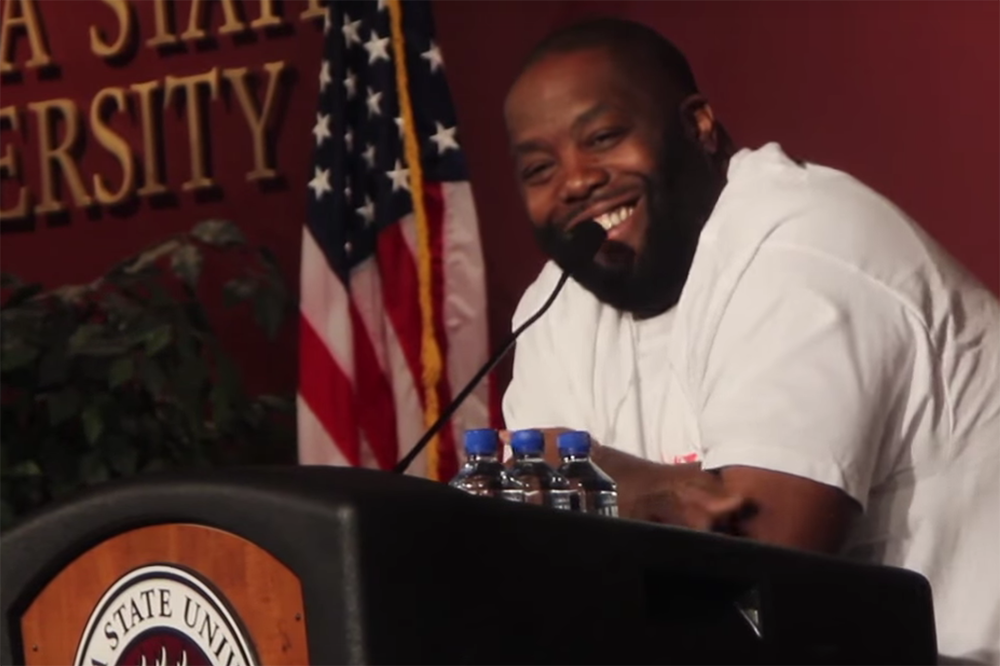Hip-hop lyrics have a history of being used against the artists who write them — in 2012, Lil Boosie‘s “187” verses were used against him in a murder trial. But Killer Mike, Big Boi, and T.I. are attempting to change that. According to the New York Times, on Monday the rappers presented to the Supreme Court an argument for why rap lyrics should be protected as freedom of artistic and political expression under the First Amendment.
The case in question involves a Fulton, Mississippi high school student named Taylor Bell, a.k.a. T-Bizzle, who in 2011 posted an original song to his Facebook page with lyrics addressing female students’ reported sexual harassment by male coaches. School officials reportedly disciplined Bell for “threatening two named educators with gun-related violence”; he and his mother then sued, but their claims for the First Amendment’s freedom of speech protection were dismissed in August by New Orleans’ United States Court of Appeals for the Fifth Circuit.
Filed by Bell’s lawyers, the brief discusses the “non-literal rhetoric,” “politics,” and “bad rap” of rap music, touching on historical songs with lyrics that could also be interpreted as “threatening” even if the artists did not act upon written actions (e.g. Bob Marley’s “I Shot the Sheriff,” Eminem‘s “Kim,” Gucci Mane’s “Texas Margarita”).
The U.S. Supreme Court is anticipated to decide whether to hear Bell’s case in February.





